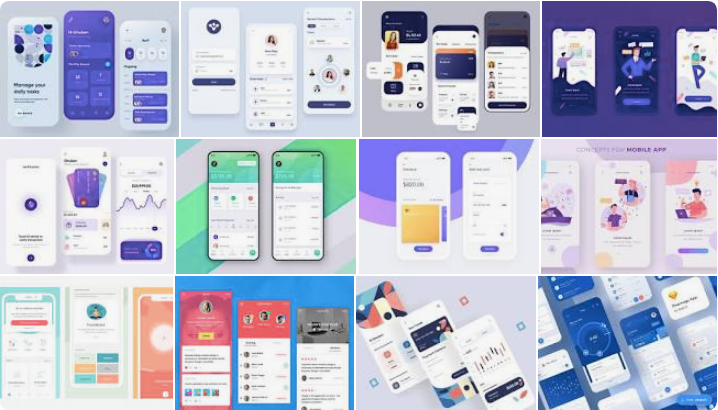Sysnavbar with FlexColorScheme
Transparent Android system navigation bar with Flutter and FlexColorScheme.
About this Example
This an extra Android companion example to the Flutter package FlexColorScheme.
It is a slight modification of example nr 5 bundled with the package and shows how FlexColorScheme can be used to make a transparent system navigation bar in Flutter Android applications.
Android setup
To make transparent system navigation bar in Flutter you must also make this change to them MainActivity.kt file in your Flutter Android embedder:
in ../android/app/src/main the default MainActivity.kt for your project:
package com.rydmike.sysnavbar // Replace with your package name
import io.flutter.embedding.android.FlutterActivity
class MainActivity: FlutterActivity() {
}
is changed to:
package com.rydmike.sysnavbar // Replace with your package name
import android.os.Build
import android.os.Bundle
import io.flutter.embedding.android.FlutterActivity
class MainActivity: FlutterActivity() {
override fun onCreate(savedInstanceState: Bundle?) {
super.onCreate(savedInstanceState)
if (Build.VERSION.SDK_INT >= Build.VERSION_CODES.R) {
window.setDecorFitsSystemWindows(false)
}
}
}
Additionally, you must use Android SDK 30 to build the Flutter Android project, so you also need to update your build.gradle file in ../android/app from:
:
android {
compileSdkVersion 29
sourceSets {
main.java.srcDirs += 'src/main/kotlin'
}
lintOptions {
disable 'InvalidPackage'
}
defaultConfig {
applicationId "com.rydmike.sysnavbar"
minSdkVersion 16
targetSdkVersion 29
versionCode flutterVersionCode.toInteger()
versionName flutterVersionName
}
:
to be:
:
android {
compileSdkVersion 30
sourceSets {
main.java.srcDirs += 'src/main/kotlin'
}
lintOptions {
disable 'InvalidPackage'
}
defaultConfig {
applicationId "com.rydmike.sysnavbar"
minSdkVersion 16
targetSdkVersion 30
versionCode flutterVersionCode.toInteger()
versionName flutterVersionName
}
:
You can find additional info and discussion about transparent system navigation in Flutter Android apps in Flutter issue 69999, it was that discussion that lead me to adding this experimental support for it in FlexColorScheme.
Support both transparent and color branded sysnavbar
When you want to use color branded system navigation bar it is best to never put any transparency on it if it is not supported. Adding transparency to the system navigation bar color when it is not supported, will just make the color on it transparent and show the default scrim color used on the system navigation bar. This will not look very nice.
If you design your app to use transparent system navigation bar when it is supported, and then want to use and have a nice looking color branded background colored system navigation bar, when transparency is not supported, then we must check which Android SDK level the application is running on and adjust the behaviour accordingly. We can use the package device_info to get the Android SDK level and keep the opacity as 1 when SDK level is below 30.
This example presents one suggestion on how this can be implemented, and the different approach to the design for the use cases.
In the sub-page in this example, it also shows how you can use a fully transparent system navigation bar when possible, and for the case when this is not possible, a color branded opaque one. Then combine this with a same background primary color branded Material BottomNavigationBar using a slight transparency. For the case that support transparency on the system navigation bar, when it is placed on top of this BottomNavigationBar with its slight transparency, it makes BottomNavigationBar and system navigation bar look like one shared translucent bottom area, with content scrolling behind it.
For the case when the system navigation bar transparency is not supported, it still has the same color as the BottomNavigationBar, but without the transparency, so it does not clash so badly with it. The BottomNavigationBar still keeps it slight transparency, and we can at least see content scrolling behind it.
Instead of just transparency on the bottom navigation bar, you can add a container to it with blur filter in it, you can then recreate the iOS frosted glass blur effect and have that on the system navigation bar too. This is not shown in this demo, but is e.g. used by one of the configuration options offered for Material BottomNavigationBar in Flexfold.
The end result is an app looking like the left one, when transparency is supported and like the right one, when it is not. I kind of like it.
This setup also supports the much smaller Android system navigation bar you get when the phone is configured to use gestures. Some Android implementations don’t even use a visible system navigation bar when gestures are enabled, this configuration also works with such Android implementation, like e.g. OnePlus gestures.

Please note that phones with API30 (Android 11), were when this was written (Jan 16, 2021) still very rare, and at the time did not even register on statcounter. This will improve over time.
Download Sysnavbar with FlexColorScheme source code on GitHub
https://github.com/rydmike/sysnavbar
Provides the list of the opensource Flutter apps collection with GitHub repository.

